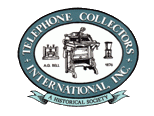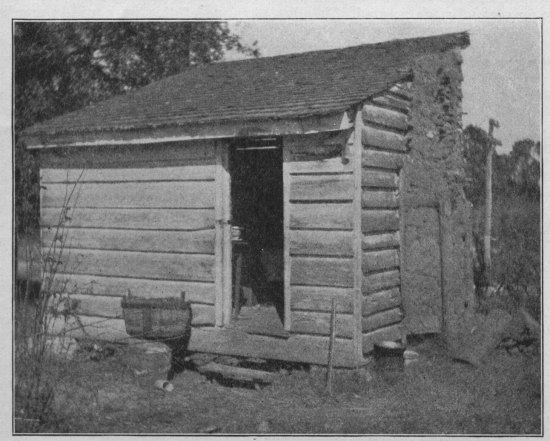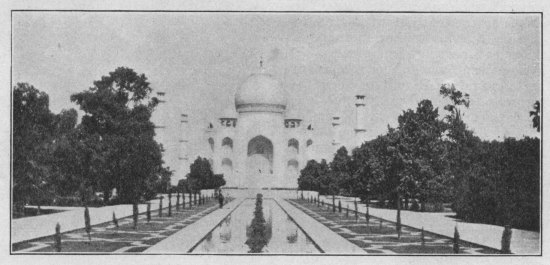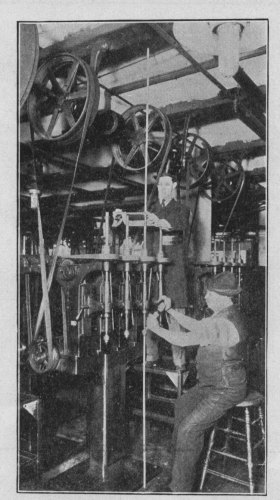
Telephone Collectors International
Some Unique Manufacturing Methods
Last update May 14, 2015
 | Telephone Collectors InternationalSome Unique Manufacturing Methods | First Posted Apr 1, 2006 Last update May 14, 2015 |
Special Features
A collection of miscellaneous material of interest to the telephone collector and historian.
Our Tribute to the Western Electric Hawthorne Works
April 1, 2006
It's been a few years but, while digging through the May 1912 issue of the Western Electric News, I found something that is definitely appropriate for a TCI "April Fools" offering. Just like Building Better Butter, Some Unique Manufacturing Methods - Our Engineer-of-Methods' Contribution Toward Reducing the Cost of Living deals with the little known grocery products division of Western Electric.
I bet you won't find this kind of stuff in the Lucent employees' magazine!
Paul Wills - Telephone Collectors International
Before outlining the most recent and marvelous mechanical investigations promulgated by our master mechanic, which have practically revolutionized methods of macaroni drilling, pretzel bending, doughnut punching, etc., it may be well to give a brief sketch of the man responsible for these unprecedented innovations.
For several months the public has been asking itself, "Who is 'That Mysterious Wragg?' " Hardly a vaudeville song and dance artist appeared on the boards, who did not warble sweetly on this subject— which in itself seems odd, as Mr. Wragg is a very fatherly appearing person, who scorns such frivolities as vaudeville, abhors strong drink, looks not upon the ink when it is red, and never gets lit up so that he has to be put out.
Although the cares of office have somewhat worn away the covering of his dome of thought, there is absolutely no truth in the story—said to have been originated by captious critics—that once, in Mrs. Childs' restaurant, he complained to the waitress that his cocoa was cold and was advised by said damsel to put on his hat if that were the case.

Joe Wragg was born Thursday, 1866; from the photograph of his birthplace it will be seen that he will, undoubtedly, be President of the United States some day. His rapid rise in life may be judged by comparing his birthplace with the residence he now occupies at the corner of Harrison Street and Eaton Place, East Orange, United States of America.

His first bid for the Hall of Fame was an article on agricultural engineering entitled, "The De-horning of the Hydraulic Ram," and his advice proved invaluable to Mr. M. E. Berry, our sporting editor, in the preparation of his recently published article on "The Punched Face." His more recent work has been on "Scientific Multiple Macaroni Boring," "Mechanical Pretzel Bending," and the perfection of similar electrical processes to be described in later issues.
In the manufacture of macaroni a great deal of unnecessary expense is incurred, due to the fact that in boring long tubes of macaroni out of solid dough rods, the chips have not only to be kept very clean but must be collected, placed in retorts, and reduced to liquid form, after which it is necessary again to draw them into rods for drilling. These redrawn rods are liable to imperceptible variations in diameter and circumference, which render them liable to rejection by the macaroni inspection division.

After a great deal of research work on the part of Messrs. Wragg, Dunbar, and Holmberg, which necessitated visits to all the principal Italian restaurants in the city, a hollow drill has been devised, which goes around the inside of the rod and cuts out the hole, but leaves the interior intact, in the form of a smaller sized rod, which, in its turn, may be drilled and a smaller rod removed, until spaghetti size is reached. All these rods are allowed a variation of +.0007", and needless to say they are most cautiously and efficaciously inspected and rejected by the spaghetti group of the macaroni inspection division.
By applying, at every turn, the principles of scientific management which have been so thoroughly impressed upon us at the New York shop, a marvelous output is obtained. The drilling is done on four-spindle Allen ball bearing drill presses. By a close inspection of the accompanying illustration it will be seen that the rods are shoved up through holes in the floor and pass out of the department through holes in the ceiling.
The regular inspectors gauge macaroni as it comes up through the holes in the floor above, breaking off pieces that do not meet their requirements. This inspection work is extremely interesting, and as one sees a group of inspectors squatting on the floor waiting for the macaroni to come up, it brings, to the mind of those who have lived in the country, a beautiful rural scene observable any day in early summer, when groups of potato bugs gather in the field where potatoes have been planted, waiting for the first tender shoots to push up through the earth, so that they may start their nefarious work.
There is, however, a special functional inspector, whose duties—as outlined by Adam Nutt in his great book, How to Make the Co. Efficient—are to inspect work after each operation, as well as the first piece for each lot manufactured. The illustration shows our special staff inspector putting a high reading micrometer on the first 100 feet of the "B" schedule of macaroni, P-41144.
As an indication of our careful method of obtaining "reliable, immediate and adequate records" in order to "standardize conditions and operations" before "standard written practice" instructions are issued, it is interesting to know that after trying machine oil, cutting oil, kerosene, and duplex compound mixed with water, with indifferent results, it was only by a fortuitous combination of circumstances that the proper lubricant was hit upon.
Mr. Wragg's wife one night, noticing how worried he looked, asked him if he was puzzled over some particularly intricate problem that had come up at the shop. Although averse to bringing matters of business into the home, he explained to her the trouble he had been having. With true woman's intuition and insight she immediately said, "Why, the thing to lubricate macaroni with is tomato sauce." This was tried with the most lurid and startling results—in fact, after using it for one week, the department was able to ketchup with its schedule.
Marvelous as this development has been, however, it is overshadowed by the far-reaching results of a revolution recently wrought in pretzelbending by our celebrated German band of tool designers and draughtsmen, for whom the pretzel in any shape has absolutely no terrors. An outline of this work will appear in the next issue of the News.